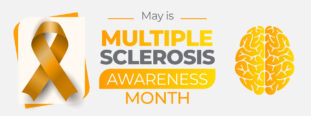The benefits of T’ai chi
T’ai chi is often recommended for people with multiple sclerosis because its potential to provide both physical and psychological benefits. The movements can build muscle strength, flexibility and stability, which can improve walking and balance. Its meditative aspect can also help with “mindfulness” – living in the moment and focusing on the here-and-now of movement and breathing.
But is there any evidence that t’ai chi actually works?
A new study compared a small group of people who started a t’ai chi program with those continuing their usual activities (Burschka and colleagues. BMC Neurology 2014;14:165). The t’ai chi group joined a class at a local centre and participated in weekly 90-minute sessions for six months. The t’ai chi practised was Yang style 10 (see video link below). The average age of participants was 43 years, and had been living with relapsing-remitting MS for an average of six years.
At the end of the program, those practising t’ai chi showed some improvement in balance and coordination, whereas those in the usual-activity group remained the same as before. Similarly, people in the t’ai chi group said they felt less depressed after completing the program and their fatigue levels were about the same. In the usual-activity group, depressed symptoms were unchanged but fatigue was noticeably worse. One of the biggest differences was in people’s ratings of their life satisfaction, which improved significantly in the t’ai chi group. A limitation of the study, however, was that those starting t’ai chi generally had less severe MS, had been living with MS for a slightly shorter time, and were more physically active to begin with.
Another limitation was time: 1 in 4 quit the t’ai chi program because they found it too difficult to work the weekly sessions into their schedule.
One other study looked at the impact of t’ai chi on multiple sclerosis (Husted and colleagues. Altern Ther Health Med 1999;5:70-74). That study found that an 8-week program was helpful in improving walking speed, hamstring flexibility, and a person’s sense of well-being. Participants said that t’ai chi helped them tackle their daily challenges a little bit better.
To view the t’ai chi style used in the study, go to www.youtube.com/watch?v=n_nfD5O15bk.
Share this article
Facebook Twitter pin it! Email
Related Posts
Back





